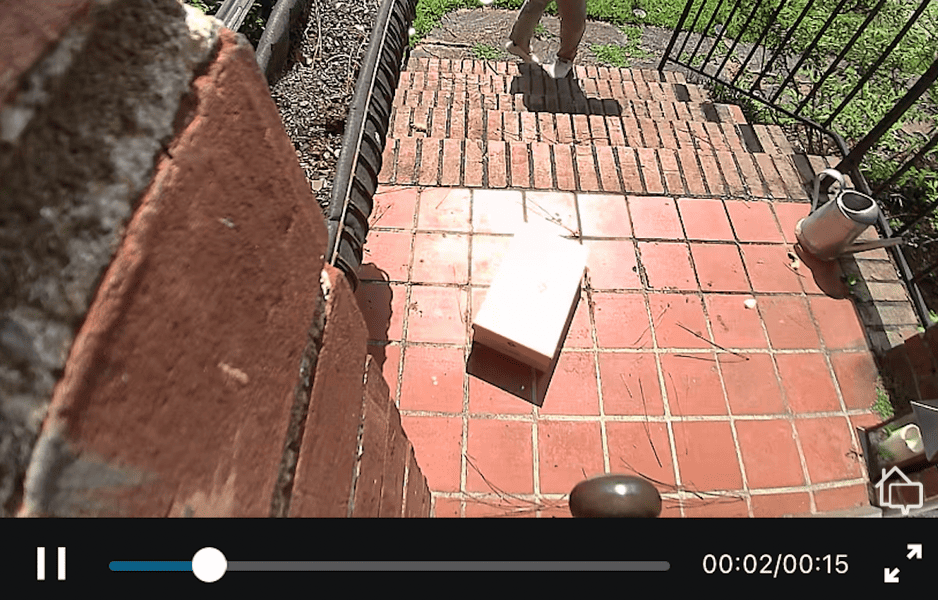What would you do if you were sitting at home one night binge-watching your favorite Netflix show only to be interrupted by the sound of someone kicking down your door?
This is the reality of many who’ve experienced a home invasion.
It’s terrifying to think about, but these crimes do happen. But to better understand home invasions and how to protect yourself from them, we should first define the term itself. And to do that, we need to clarify a few things.
How does your home measure up when it comes to security? Take this quiz to see how you score, and get recommendations to protect your home.
Home Invasion vs. Burglary
While these two terms are sometimes used interchangeably, they’re not exactly the same. A burglary is when a thief breaks into an unoccupied home with the intent to steal. A home invasion is when a criminal breaks into an occupied home with violent intent. This could be theft, but it could also be assault, murder, kidnapping, or another crime.
Pro Tip: Regardless if it’s a home invader, a burglar, an arsonist, or any other kind of criminal, a well-rounded security system is a good deterrent and a tool to keep you safe. To learn more about them, read our home security systems buyers guide.
Home invasions are much more dangerous than run-of-the-mill robberies and are treated as such in the eyes of the law. At this point, you might be wondering exactly how frequently these crimes occur.
How Common Are Home Invasions?
Statistics are a little hard to come by, mainly because there isn’t a uniform legal consensus on what constitutes home invasion. As mentioned, we understand that it typically means “someone breaking into your home while you’re in it.” Legally, however, that might be classified as aggravated burglary, or another state-specific legal term that makes compiling nationwide data difficult.
FYI: There are only seven states where “home invasion” is a legal term: Georgia, Michigan, Connecticut, Illinois, Florida, Louisiana, and Nevada. Home invasion laws have been introduced in South Carolina and Maryland. Everywhere else, they are defined more specifically through already-existing legal language.
Simply put, “home invasion” isn’t a legal term, so any statistic you find regarding them you should take with a grain of salt. For context, though, about 66 percent of the 2.5 million burglaries that happen annually take place in homes, and the vast majority of those crimes occur when no one is present. In fact, many criminologists say that the presence of an individual is one of the best deterrents to robbery. It stands to reason, then, that home invasions happen relatively infrequently.
What Are the Consequences of Home Invasion?
Since “home invasion” itself isn’t a legal term in most places, there are no hard-and-fast rules for what the legal consequences of a perpetrator might be. However, generally speaking, the penalties are stiff.
Pro Tip: Research shows that the presence of a security camera is a great crime deterrent. Want to read about our favorite brand? Check out our Lorex review.
Violent crimes like aggravated assault, sexual assault, aggravated robbery, and kidnapping are all felonies, and no matter where they take place, the penalties are always harsh. When caught, a home invader will likely be sentenced to time in the double digits, if not more. In some cases, home invaders who’ve committed particularly heinous crimes have been put to death.
Although these crimes don’t happen with the same frequency as typical robberies, it’s still important to know what to do if your home is invaded and what you can do to prevent it from happening.
What Do I Do During a Home Invasion?
It will be difficult to do this if you suspect someone is entering your home, but remain calm and keep quiet. Do not call out, and do not, under any circumstance, attempt to engage with the intruder. Other tips:
- Stay where you are. If possible, quietly lock the door to the room you’re in. The vast majority of the time the intruder chose to enter your home because they thought you weren’t there. If they are armed, you don’t want to surprise them.
- Call the police if you can. Speak in a clear whisper and explain the situation. In some jurisdictions, you might be able to text the 911 dispatcher. The sooner you contact the authorities, the quicker help will arrive. Keep in mind, though, response times can be slow.
- Decide if escape is necessary. If it seems like the intruder is there to do you harm — an example of this would be them calling out to you — consider making an escape quickly. Windows are a good option.
- Afterward, write down everything you can remember. Home invasions are traumatic experiences, and they will affect your subconscious in ways you may not expect. The more accurate information you can provide to the authorities, the more likely the perpetrator will be brought to justice.
Obviously every situation is different, and the presence of children and pets may make home invasions even more complicated and frightening. However, the general rule is to stay as quiet as possible and get out if necessary.
That said, some states have laws that protect homeowners if they need to defend themselves in a home invasion situation. These laws are generally described as “Castle Doctrine,” which we define below.
What Is Castle Doctrine?
In most self-defense situations, you have the legal obligation to attempt retreat before retaliating with force; however, in states that have adopted Castle Doctrine, there is no option for retreat when an individual is in your home. As such, the use of reasonable – or even deadly – force against an intruder in your home is warranted.
FYI: There are a handful of states that have enacted so-called “stand your ground” laws, which remove the legal requirement for retreat from self-defense situations. These controversial laws have made headlines in recent years, most notably in the Trayvon Martin shooting in 2012.
Despite how it is portrayed in movies and TV shows, the decision to use lethal force to protect yourself is not an easy one. People who have done so often suffer from a lifetime of mental health issues, including PTSD, and may spend years and thousands of dollars defending themselves in court. While everyone may fantasize about being Dirty Harry if confronted, the reality of the situation is that flight is almost always the best option in a home invasion scenario.
But there’s actually an even better option: prevention.
FYI: SafeHome is now livestreaming! Got questions about home security? Email us at info@safehome.org, and we’ll answer your questions live on our next stream—personalized advice, straight from the experts. Find us on YouTube @safehome_org. Don’t miss out!
SafeHome’s Latest Livestream
Our home security experts are now doing livestreams with industry experts like retired SWAT Commander Gene Petrino. Learn how to protect your home and family from thieves, burglars, and home invaders.
How Can I Protect Myself From Home Invasion?
The best method for home invasion protection is to make sure one never happens. There are many ways to deter burglars and home invaders, from the simple to the sophisticated. It might be as easy as putting a “beware of dog” sign in your yard, or strategically placing some floodlights. Check out our review of Kuna for more information on that. The point is you’ll want to make potential criminals think twice about attacking your property specifically.
If you want to get a little more sophisticated, you can read our roundup of the best home security cameras of 2025. Studies show that the presence of a security camera significantly deters criminals, and having one prominently scanning over your back entryway might be enough to make a home invader think twice.
Pro Tip: Want to protect yourself but protect your bottom line as well? Read up on how much a home security system costs.
Also consider investing in a solid security system with a loud alarm and even the capacity to automatically notify authorities to danger. You can read through our list of this year’s best home security systems for the exact specifications you’re looking for.
At the end of the day, the more protective barriers you have in place, the better your odds of not falling victim. Think of your security system as the concentric walls of a fortress. A criminal might be willing to climb over one or two barriers, but if you have three, four, or five in place, they’re likely going to look elsewhere.
Home Invasion FAQs
- Do home invasions happen often?
It’s difficult to gather statistics since “home invasion” isn’t an agreed-upon legal term. However, we can reasonably say that the likelihood of falling victim to a random home invasion is considerably lower than, say, a burglary.
- What do I do if my home is invaded?
Remain quiet and keep calm. Try to alert authorities if possible. If the home invader seems to want to do you harm, try to find an escape route and run to safety.
- How can I protect myself from a home invasion?
The best way to protect yourself from a home invasion is to make yourself a difficult target. Invest in a security system with cameras, build a fence, or put up motion-detecting floodlights.
- Is a home security system a good investment?
For the most part, yes, but you’ll want to make sure the equipment you purchase will be serving a specific safety purpose. Do your research before buying equipment you might not need.
- Who invades homes?
The odds of a random person breaking into your home with the intent to do you harm are exceedingly low. Most home invasions with violent outcomes are perpetrated by someone the victim knows personally.







